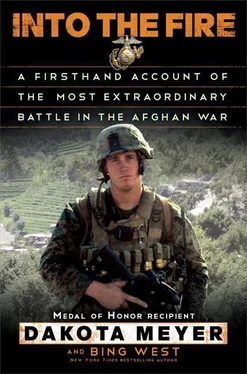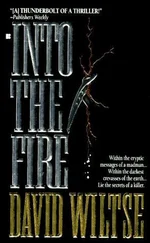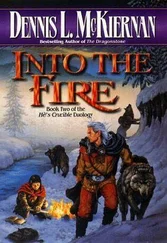As for me, I didn’t think about civilian life after the war, and I wasn’t ready to settle down. I was training the Askars to use the M16 rifle and riding shotgun on our daily patrols to hold “key leader engagements.” Lt. Rhula appeared to want to do the right things, and his first sergeant was tough and demanding. But they couldn’t impose their wills on the entire company. The Askars had a high sense of individual self-worth and tolerated each other like an unruly class of tough eighth-graders. When an Afghan soldier went home without permission—what I would call deserting the unit—the others weren’t upset. We were advising an army with no established standards of group behavior.
Sometimes we advisors felt more like parole officers. Some Askars tried, and others clung to old habits, like—what can we steal today? A standard scam was to siphon fuel from their own generator and their own trucks to sell in the local markets. So we parked the Afghan Humvees on the U.S. side of the motor pool and let their generators run out of fuel. After two days of no lights, no air conditioning, no hot water, and no rides to the market, they got the message and behaved themselves—for a while.
They grew hash wherever they could. When a stoned Askar stumbled or staggered on patrol, the others would smile tolerantly. “Hash cigarettes are like dushman RPGs,” Johnson warned. “If you’re high, you can’t shoot back and the RPGs will kill you.” When Lt. Johnson burned the plants growing on base, the Askars retaliated by making a hash run into the market and, stoned silly, crashed two Humvees on their way back.
What bugged me most was the negligent discharge of guns. They would play with their new guns at night until one went off. I’d hear the crack of it, then nervous laughter. I’d storm through the camp until I smelled the cordite hanging in the air. Then I’d grab the offender and bang on the door of Lt. Rhula’s hooch. He would take it from there.
In the hills along the Pakistani border, no Afghan, military or civilian, had much of anything. I think practically every American soldier or Marine tried to help in some way. We purchased candy and trinkets in the markets to give to the kids. I soon had two little buddies, boys about ten or eleven. They’d hang around the main gate, yelling “Meyeda! Meyeda!” (Meyer!) when they saw me. At first, I’d buy them Cokes, and then I started sharing my care packages from home—soap, candy, peanuts, gum. Maybe a decade from now, some kids would remember that some Americans were kind to them, even when their older brothers were shooting at them. Maybe not. You don’t help out because you expect something in return.
If people like you, generally you like them. I enjoyed hanging out with the Askars. They laughed a lot at little, and once you were firm about not being Santa Claus, most stopped asking you for stuff. I ate dinner every night with them—rice, cachaloo potatoes, and gravy. Of about a hundred Askars, I memorized the names of the twenty or so who tried the hardest. I was especially close with five who were as dedicated to their job as I was. We’d sit outside in the evenings with our food and, with Hafez’s help, talk for hours. They refused to believe that my dad worked three hundred acres in his spare time, after he got home from work. How many days a week, they asked, did I rent a tractor? They were convinced I was a millionaire when I told them we had two tractors.
They thought it was a great joke when I told them my government paid farmers not to raise tobacco. Making money by not working was beyond their comprehension. When we sketched out in the dirt the comparative size of our farms, they decided that, yes, I was the richest man they had ever met. They were absolutely dumbfounded why a man so wealthy would come to Afghanistan to fight bandits.
I asked if it was true that they shared their houses with their cows. Certainly not, they said; cows were kept in a separate section of the house, not in the living quarters.
Sex with women intrigued them. I won’t get into what they asked about, but their sexual imaginations knew no bounds. Whatsoever.
I discussed religion with them all the time, trying to understand their beliefs while they were doing the same about mine. I was surprised at how educated they were about Christianity.
The Askars scoffed at the suggestion that the Taliban were the true Muslims. They were just bandits and murderers, they said. I don’t think they said that just for my benefit. When I asked if they knew where the dushmen were living, they assured me they did. But when I urged that we attack them there, they laughed as if I were simple-minded. I was always talking to them about how badly I wanted to fight and how much I looked forward to it. They would just sit and laugh, nodding along, with about as much confidence in me as they had in the idea that there would ever be peace in Afghanistan.
* * *
After dinner was a good time to call home, as people would be just starting their day in the States. We bought minutes on inexpensive Afghan cell phones. I wasn’t much for emails or video chats—I just never felt comfortable or natural communicating that way. A phone call was about my limit.
“Hi, Dad, this is Dakota. How’d your week go?”
“Good. The rain’s held off and we got up a hundred bales behind Pepa’s house. Tractor’s acting up. What’re you doing?”
“Nothing much. Just got back from another patrol. Pretty boring.”
It was like that. I would also call my friends Toby and Ann. Ann had been my high school advisor and she and her husband and I were like family. Toby wouldn’t hang up until he got something out of me that was either funny or dangerous. They would talk about me and what they saw in the news about that strange country in far-off central Asia.
In our hooch, we didn’t talk much about our lives back home. It was another planet, and nobody was interested in the soap operas going on back in somebody else’s family. We weren’t bored or annoyed by each other. We were different ranks and ages, so the verbal hazing you’d hear among lance corporals in a platoon—ridiculing comments about families, wives, or girlfriends—didn’t happen. When we visited another base, we stayed together.
After a while, it all becomes you, your buddies, and your Afghan friends. Other worlds fade away, even the other advisors ten miles down the road at Joyce. You stay alive because of what you do each day, sometimes each hour. It’s just you and your small band, operating beyond the bounds of civilization. You even think you control your own destiny.
Chapter 5
COMING TOGETHER
Some U.S. soldiers at Monti confided to us that they weren’t seeing enough action. After several outposts had been overrun, the U.S. high command had tightened the rules about leaving the wire. A patrol had to write a briefing detailed enough for a space launch. However, since we advisors fell under the Afghan command we could still plan our normal patrols—the beer runs with badass vehicles.
Sgt. 1st Class Dennis Jeffords complained to me that he wasn’t getting enough action. One night he and PFC Lage pulled me aside. Lage liked to fight so much that he carried a 240G machine gun instead of a rifle. Jeffords had received permission to set up a vehicle control point the next day. Nothing was more boring than a VCP—stopping jingle trucks and searching through chickens and fertilizer poop for weapons that were never found.
Jeffords and Lage had decided to place their checkpoint at Hill 1911, a notorious ambush point where a steep valley intersected with the only paved road north from Monti. Their plan was to sit there until they took fire. Then, instead of pulling back as standing orders required, they would stand and fight against the enemy on the high ground.
Читать дальше












